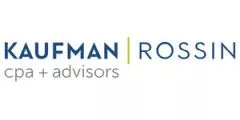This blog was originally published on November 4, 2014. It was updated on May 6, 2024.
Family offices often lack the policies and procedures that can help safeguard them from internal fraud. The culprit could be a rogue employee or even a previously trustworthy employee who has had a life-changing event with significant financial implications, such as the death or disability of a spouse or a divorce. Although you may have complete trust in your internal team, there are still some steps you should take to minimize risk.
Many think a smaller office with fewer employees allows for easier monitoring and controlling of fraud. In reality, the fewer employees, the more difficult internal controls become.
Internal controls: the first line of defense
Internal controls are a series of systems and procedures designed to serve as the first line of defense in safeguarding a company's assets. A family office is no different. While not a 100% guarantee, internal controls, if properly structured, can go a long way towards helping to protect your office against theft and fraud.
As a family office's objectives and structure change, management must continually evaluate controls to assess effectiveness. Breakdowns in controls can occur, such as human error, deliberate circumvention, management override, and even collusion.

The fraud triangle is a model for explaining the three conditions that are present for occupational fraud to occur: opportunity, rationalization, and motivation (financial pressure). Breaking the triangle is the key to fraud deterrence.
Separation of duties
Inadequate internal controls and poor segregation of duties can create opportunities for employee fraud. For example, does a key employee have too many keys or is the bookkeeper keeping some of the money? Some of the most basic separations of duties are often overlooked.
Here are some questions to ask yourself:
- Does an employee with signature authority have access to check stock?
- Does an employee who originates checks have the authority to add vendors?
- Is check stock regularly counted by someone not involved in the disbursement process?
- Are bank reconciliations and vendor lists regularly reviewed by someone other than authorized persons originating them?
- Are there controls in place to ensure that incoming checks and cash are handled properly?
Solutions for a small family office
It is challenging to properly separate duties if there are only a few people in an office. So what can a small family office do in this case?
Many high-net-worth families hire employees to take care of the day-to-day details so family members can minimize their involvement in the minutia. However, in a small office, the family members may be required to get more involved in implementing and assessing controls.
Alternatively, a family could engage the services of an independent accounting firm with expertise in family office management. For example, a qualified accounting firm could prepare or review bank reconciliations, count check stock, oversee the disbursement process, or even handle the entire administration and management of the family's affairs.
An in-depth internal control analysis can help to identify areas of weakness and concern. The analysis should focus on the accounting policies and procedures in place, including disbursements and receipts of the office's funds. The analysis can identify potential problem areas and provide recommendations that, if properly implemented, can help your family office accomplish the following objectives:
- Efficient operations and effective use of the office's resources
- Accurate financial internal and external reports
- Compliance with applicable laws and regulations
The content of this article is intended to provide a general guide to the subject matter. Specialist advice should be sought about your specific circumstances.


